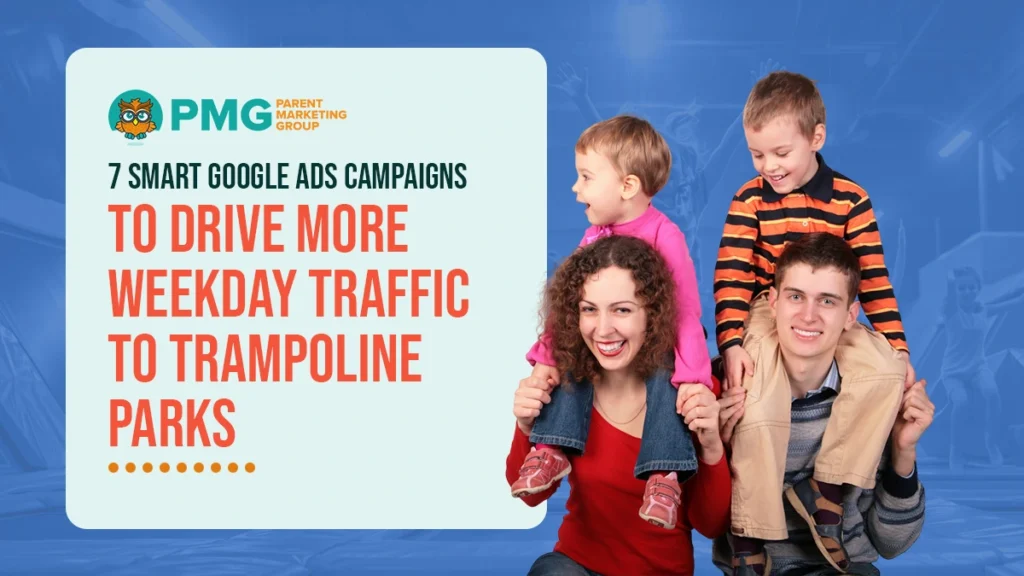Voice search optimization for mini golf courses is essential for attracting local families who rely on voice-activated devices to find nearby entertainment. As search behavior shifts toward conversational queries, mini golf operators must adapt their digital presence to remain competitive and visible.
Optimizing for voice search enhances local discoverability, supports mobile-first interactions, and aligns your business with how modern parents search for activities on the go. Structured listings, natural language content, and location-based keywords ensure your course appears in relevant voice search results. Adopting this strategy positions your business for continued growth in a voice-driven market.
Key Principles of Mini Golf Voice SEO for Higher Visibility

As voice search becomes increasingly integrated into everyday digital behavior, understanding the fundamentals of mini golf voice SEO is essential for maintaining visibility in local search results. Unlike traditional typed queries, voice searches are often more conversational and question-based, requiring a refined approach to content development and technical optimization. Mini golf course operators who adopt these principles can strengthen their presence and capture more attention from mobile and smart speaker users.
Focus on Conversational, Long-Tail Keywords
Voice queries tend to be longer and more natural in phrasing. Instead of searching for “mini golf near me,” a user might say, “Where can I take my kids to play mini golf this weekend?” Adapting your website content to reflect these patterns improves relevance and alignment with search intent.
Best practices include:
- Incorporating full questions into headers and page content
- Using customer language in FAQs and blog posts
- Writing in a clear, direct style that mirrors how users speak
Content should answer specific questions about hours, pricing, location, group options, and family amenities, as these are frequently included in voice searches.
Optimize for Featured Snippets and Quick Answers
Google often pulls responses to voice queries from featured snippets. Structuring your content to qualify for these positions increases the likelihood of being read aloud by virtual assistants.
To improve eligibility for snippets:
- Use concise paragraphs (40–50 words) to answer common questions
- Format information using bullet points, numbered lists, or Q&A blocks
- Ensure each page targets one primary topic or question
These elements make it easier for engines to extract and present your content in response to voice commands.
Strengthen Mobile and Technical SEO Foundations
Because voice searches are most commonly performed on mobile devices, your website must meet the standards of mobile-first indexing. Google prioritizes fast, responsive, and user-friendly sites.
Ensure technical readiness by:
- Reducing page load times and removing unnecessary scripts
- Using responsive design for all screen sizes
- Implementing secure HTTPS protocols
By aligning content structure, keyword strategy, and technical performance with the expectations of voice search users, mini golf courses can position themselves to attract more families, drive engagement, and stay competitive in a rapidly evolving search landscape.
How to Improve Smart Speaker Search for Mini Golf Courses

With the surge of voice-activated devices such as Amazon Alexa, Google Assistant, and Apple’s Siri, optimizing your business for smart speaker search is critical for remaining discoverable. Families frequently use these devices to find local activities, often with the immediate intent to visit. Enhancing your online presence to align with smart speaker search for mini golf inquiries ensures your course is included in these high-intent results.
Maintain Accurate and Complete Business Listings
Smart speakers source much of their information from online business directories. Your Google Business Profile, Apple Maps listing, and third-party directories must be up to date and consistent.
Ensure your listings include:
- Correct business name, address, and phone number (NAP)
- Updated business hours, including holiday variations
- A detailed description that mentions “mini golf” and key offerings
- High-quality images and active review responses
Inaccurate or incomplete listings reduce your chances of being recommended by voice assistants, particularly for “open now” or “near me” queries.
Use Natural Language Across Key Pages
Smart speaker algorithms prioritize websites that use conversational phrasing. The content on your homepage, FAQs, and service pages should reflect how real users ask questions about mini golf experiences.
Optimize for natural queries such as:
- “What are the best mini golf courses near me?”
- “Is there a mini golf place open right now?”
- “Where can I take my kids to play mini golf indoors?”
Embedding these phrases naturally throughout your site content, especially in question-and-answer formats, helps voice assistants identify your course as a relevant result.
Add Structured Data for Enhanced Recognition
Structured data (schema markup) improves search engines’ interpretation of your website content. Adding specific schema types can help voice assistants surface details like operating hours, pricing, and amenities.
Recommended schema for mini golf courses includes:
- LocalBusiness or SportsActivityLocation
- OpeningHoursSpecification
- Address and contact information
- Accepted payment methods and booking options
Enhancing your website’s compatibility with smart speaker search increases the likelihood of being featured in voice responses, driving more local traffic and bookings to your mini golf facility.
Implementing Local Voice Search Strategies for Mini Golf Success

Local voice search is a powerful driver of foot traffic for mini golf courses, especially when families use mobile devices or smart assistants to locate nearby activities. To capture these high-intent searches, your business must be strategically positioned with content and listings that reflect how people search in real time. Implementing effective local voice search strategies for mini golf success requires a combination of location-based optimization, structured data, and clear, user-friendly language.
Incorporate Neighborhood and Landmark References
Local voice queries often include references to nearby neighborhoods, intersections, or landmarks. Including these terms naturally in your website content helps improve relevance and search accuracy.
Effective ways to localize content include:
- Mentioning surrounding towns or communities (e.g., “Serving families from Springfield and Riverdale”)
- Referring to major nearby landmarks or roads
- Including location-based phrases in page titles and meta descriptions
Localized content increases the chances that voice assistants will identify your course as the best nearby option for relevant queries.
Keep Business Listings Consistent and Optimized
Your online listings must be accurate, consistent, and optimized for local discovery. This includes platforms like Google Business Profile, Yelp, Bing Places, and Apple Maps, which influence voice search results.
Essential listing elements to maintain include:
- Matching NAP (name, address, phone number) across all directories
- Updated holiday and seasonal hours
- Clear category selection (e.g., “Miniature Golf Course”)
- Relevant business attributes such as a kid-friendly or outdoor venue
Search engines prioritize well-maintained listings, especially for voice searches that involve “near me” or “open now” phrases.
Target Voice-Specific Search Intent
Many voice searches are conducted with immediate intent, such as “Where can I play mini golf right now?” Your content should reflect and respond to these time-sensitive queries.
To align with this intent:
- Use phrases like “open daily,” “walk-ins welcome,” or “no reservations required”
- Create a structured FAQ page that answers specific local questions
- Optimize your page for mobile responsiveness and fast loading times
By combining localized phrasing, accurate listings, and intent-based content, mini golf courses can significantly improve their visibility in voice search and capture more real-time visits from nearby families.
Enhancing Website Architecture for Voice Search Compatibility
Optimizing website architecture for voice search compatibility is critical for ensuring that mini golf courses are properly indexed, interpreted, and served in response to voice-based queries. A well-structured site improves general SEO performance and directly supports the specific formatting and clarity required by voice assistants. Streamlined navigation, clean code, and structured content help search engines understand your offerings and present accurate, relevant results to users.
Implement Schema Markup for Structured Content
Schema markup is a type of microdata that helps search engines interpret the context of website content. It is essential for voice search, allowing platforms like Google Assistant or Alexa to extract and present detailed information.
Key schema types to include for mini golf courses:
- LocalBusiness: Identifies your business type and contact details
- OpeningHoursSpecification: Communicates operating hours in machine-readable format
- GeoCoordinates: Provides precise location data for local queries
- Offer and PriceRange: Supports pricing information visibility
Integrating schema markup into your site improves your likelihood of appearing in featured snippets and voice assistant answers.
Prioritize Site Speed and Mobile Responsiveness
Voice search is predominantly conducted on mobile devices. If your site loads or performs poorly on smaller screens, it may be excluded from voice results.
Enhancement strategies include:
- Compressing images and minimizing CSS and JavaScript files
- Utilizing a responsive design that adapts to all screen sizes
- Implementing secure HTTPS protocols for trust and compliance
- Avoiding intrusive interstitials or pop-ups that disrupt usability
A fast, responsive site ensures accessibility and favorability in search engine rankings.
Use Clear Headings and Content Hierarchy
Content should be organized using a logical hierarchy of H1, H2, and H3 tags. This structure helps search engines identify key information and more effectively match it to voice queries.
To support voice indexing:
- Use headers to introduce specific questions or service categories
- Keep paragraphs concise, ideally under 50 words
- Incorporate bulleted or numbered lists for scannable content
Enhancing your website architecture for voice search compatibility supports discoverability and ensures that your digital presence is built to serve how families search for entertainment today.
Conclusion
Voice search is no longer a trend—it’s a fundamental shift in how families discover local activities like mini golf. By optimizing your listings, website content, and technical structure for voice-activated queries, your mini golf course can remain competitive, increase visibility, and attract more on-the-go visitors. Whether through schema markup, conversational phrasing, or accurate local listings, voice search optimization positions your business as the top result when families ask, “Where can we play mini golf today?”
Take the next step in voice-ready marketing with support from Parent Marketing. Visit https://parentmarketing.com/contact-us or call (716) 303-4133 to learn how we can optimize your mini golf course for voice search success.







